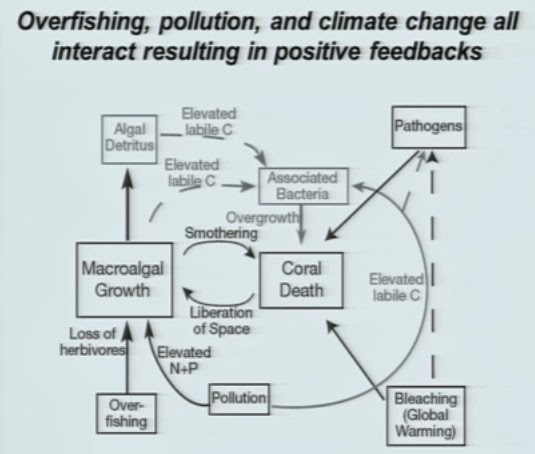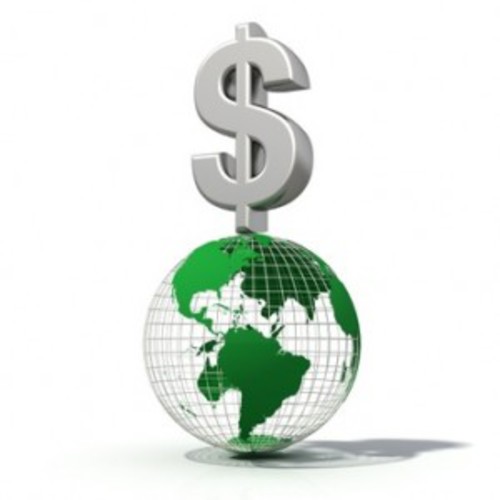How can anyone whose job creates lots of problems in the world live with themselves? The problems created by some jobs are obvious. For example gasoline station attendants are enablers to all the ills that come from burning gasoline. The job of an “insect/pest control” workers is spraying poison in buildings, sometimes where children play. Doing these jobs directly worsens the environment. In some jobs, the negative side effects aren’t so obvious, such as software engineering (my career). What if everyone chose work that solves that solves the problems society faces, rather than continue working on tasks that create more problems for society?
Wait, you’re saying, software engineering is clean work, why is it a problem? The biggest risk for typical software engineers (and writers) is obesity from sitting too much. But what is the effect of that work? A lot depends on the end goal of the software written by a development team. The ends don’t always justify the means. There’s an endemic problem in software engineering: Lack of connection to the customer. There is a huge gulf of separation between the coder (software engineer), the customer, and the side effects of that work.
This separation between the person and their effect on the world is endemic all across modern society. It’s like thinking water comes from the faucet (rather than rivers), or water/gasoline/etc are inexhaustible, or there’s no environmental side effect to turning on a light bulb, or that corn and peas comes in plastic bags in the frozen food section of the grocery store. When we chow down on a burger at In-and-Out Burgers, do we think about the suffering of the cow from which that meat came? When driving, do we think of the oil spills, ruined landscapes, and toxic chemicals, that go into creating the simple pleasure of driving a car at 80 miles/hr on a modern highway? It’s not just that “we” are asleep about the side effects of our lives, it’s that the powers-that-be purposely construct our environment to erase awareness of the side effects.
A few years ago, when I still worked full time in software engineering, examining my consciousness unearthed the conclusion that I couldn’t do that work any longer. I wanted to pursue work that feeds a responsible lifestyle, where I don’t feel I’m compromising, and is a real contribution to improving the world. At that time I was just beginning to connect the dots between my work, and the potential to improve our world or harm it. In early 2009 Sun Microsystems jettisoned me and thousands others because of the financial crisis thew the company into deep crisis. That gave me the opportunity to explore the blogging and online journalism work that I’ve pursued since then.
My software engineering work made me party to some important points in Internet History. Including the creation of the MIME protocol that gifted us with multimedia e-mail, the creation of the online streaming video industry in 1997, the rise of Java as a top programming language, the open source Java platform (OpenJDK), and the rise of Node.js. My profiles on LinkedIn![]() and oDesk
and oDesk![]() will give you an idea of that history.
will give you an idea of that history.
What was it about software engineering that I couldn’t do any longer? It wasn’t the immediate environment of the job. As I said the workplace for software engineers is very clean and the immediate output of our work is just bits in a computer. The environmental cost of running those computers is a big question mark. Is the electricity consumption and consequent environmental cost worth the benefit these machines supposedly give us? But there are bigger environmental worries that threaten our whole society. Ones which threaten the very survival of our society.
These huge problems in the world are what I talk about on this blog – climate change, environmental degradation, financial stresses on modern society, depletion of natural resources, and more. Some of us are highly alarmed about the effects of these issues, and rightly worry that modern society will simply collapse due to these problems. For example, it looks like climate change spiraling out of control as well as environmental degradation is causing a huge die-off of animals in the oceans, erasing hundreds of millions of years of evolutionary development, and threatening world food supplies with mass starvation.
I couldn’t sit by watching that happen without lifting a finger to help create solutions. That led to several years covering the electric vehicle field, writing news articles, and along the way learning the ropes of being a Journalist. This work led to writing news articles on PlugInCars.com. Then I started work for Recargo, the owner of PlugInCars.com, as a Software Engineer redesigning the PlugInCars website. After several years writing news articles, I’m back working in software engineering, but with a purpose fitting my goal of creating positive change in the world. I’m contributing to the electric vehicle industry by making PlugInCars even more attractive and useful a resource on electric vehicles. This should help spawn more interest in these cars, and help push modern society to driving clean cars.
I am writing this today not to create the illusion that I’m anyone special. But it’s to explore thoughts about how ones job – ones work in the world – can help solve problems, or create more problems.
Business As Usual – that is, the conduct of Business as it is Commonly Practiced – is what created the problems we face in this world.
Solving those problems means switching from Business As Usual to a more responsible work/business/government/religion structure. But before we can even begin developing the solutions, “we” collectively have to become aware of the problem. Are we addicted to Business As Usual? Maybe we should take the first step preached by Alcoholics Anonymous, recognize that we’re addicted? After that we can begin taking the second step, recognize the effects of our addiction and begin to address the problems our addiction causes.
Those of us with regular jobs, we do what the boss says. There’s a dictatorial element where the boss has the power to essentially force workers to do their task, no matter what the side effect of that task is. The people whose job is destroying mountains for “mountain top removal,” to get at the coal under the mountain, are forced to do that work – under the threat of being fired. Yet the work causes extreme harm to the mountains where this is practiced.
Why do I say “dictatorial”? The boss has leverage over their workers, by threatening their workers livelihood through firings or layoffs. Worker dare not question the work their doing, because they could lose their jobs. Workers dare not talk with the Press, they might expose company secrets, even if those secrets are the toxic whatever perpetrated by the company.
Companies free reign to stifle dissent is close to, if not identical to, dictatorial powers practiced by some governments. Do we really we live in a Free Society, a Democracy? If we cannot raise objections, or expose egregious stuff done by our employer, where is Freedom? Or is it just old fashioned Serfdom with a pretty face on it?
- Highway design could decrease death and injury risk, if “we” chose smarter designs - March 28, 2015
- GM really did trademark “range anxiety”, only later to abandon that mark - March 25, 2015
- US Government releases new regulations on hydraulic fracturing, that some call “toothless” - March 20, 2015
- Tesla Motors magic pill to solve range anxiety doesn’t quite instill range confidence - March 19, 2015
- Update on Galena IL oil train – 21 cars involved, which were the supposedly safer CP1232 design - March 7, 2015
- Another oil bomb train – why are they shipping crude oil by train? – Symptoms of fossil fuel addiction - March 6, 2015
- Chevron relinquishes fracking in Romania, as part of broader pull-out from Eastern European fracking operations - February 22, 2015
- Answer anti- electric car articles with truth and pride – truth outshines all distortions - February 19, 2015
- Apple taking big risk on developing a car? Please, Apple, don’t go there! - February 16, 2015
- Toyota, Nissan, Honda working on Japanese fuel cell infrastructure for Japanese government - February 12, 2015

















